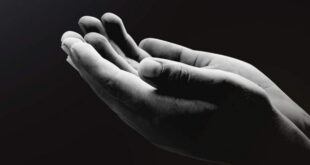Ramadan: a Spiritual Time in Senegal for a Foreign Student
by Ben Hubbard
January 1998
Northwestern University
EVANSTON, Ill. — As-Salaam Alaikum. At this time last year I was fasting. For those of you who don’t know, this is the month of Ramadan, the holiest month of the Muslim year. It is observed by Muslims worldwide through fasting and increased concentration on purification of the soul and closeness with God.
While not a Muslim myself, this time last year found me in Senegal, the westernmost country in Africa, whose population is 90 percent Muslim. Given that just about everyone I knew was Muslim and would be fasting during Ramadan, I decided, rather reluctantly, to fast as well.
If all my friends had to force themselves through it, I figured the least I could do was try it for myself to better sympathize with what they were going through. When in Rome, do as the Romans; when in Senegal, fast.
While I had resolved to fast for the entire month, I can’t say I was particularly excited about it. The prospect of no food or drink from sunrise to sunset for 28 days straight didn’t strike me as particularly appealing, especially in a climate much more conducive to thirst than our own.
Senegal is not known for its mild mid day temperatures, which often soar above 90 degrees.
Ramadan started with a bang, a rather large one, that woke me up at 5:30 a.m. as my friend pounded on my door telling me we had to go eat before sunrise or we would never make it to 7 p.m. when we could break our fast.
Reluctantly, I pulled myself out of bed and dragged my half-asleep body to the dining hall where we ate the heavy porridge that was supposed to get us throug h the next 11 hours of non-consumption.
“This is what they have to go through every day,” I told myself, proud for being so compassionate and forcing myself to experience the pain and suffering that my friends had to go through every day.
But this is where I got it all wrong. I went into Ramadan thinking that it was a miserable time in which Muslims forced themselves to endure the excruciating discomfort of hunger and thirst out of some cruel religious obligation.
But as the month progressed, I discovered that quite the opposite was true. The early breakfasts I had originally despised became more tolerable. I actually began to look forward to sunset, when we would all gather in friends’ rooms to break the fast together while talking and joking about who was hungrier.
As time went on, I discovered that the focus of Ramadan is not, as many outsiders believe, on the pain and self-denial of fasting.
For Muslims worldwide, Ramadan is a time of increased focus on spiritual purity and closeness to God, a time for reconciling differences between people, and a time for visiting with friends and family.
While I had gone into Ramadan thinking that I was “putting myself through it” in order to “better sympathize” with my friends, sympathy was the last thing they needed.
Ramadan was the most treasured time of the year.
When it ended, I was sitting with one of my friends, saying, “I can’t believe it’s over already.” All the fun had just begun.
 navedz.com a muslim's Quest for the truth
navedz.com a muslim's Quest for the truth









Greeting –
Just curious where the heck you found this. I wrote this about 10 years ago as a column in the Daily Northwestern. I had no idea it was still out there. Maybe it wasn’t until you posted it here.
@Ben Hubbard
I read this a year back and posted it on a community in orkut.. I am sure I read it on the internet. Anyways thank you for this. Hey.. if you could tell me an approx date of this article.. i would really appreciate it. Thanks in advance.